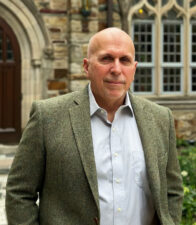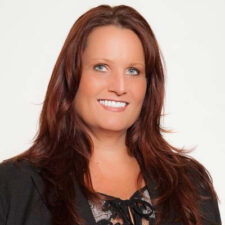When Dr. Jim Whelan, meets a patient with a gambling disorder, he follows one procedure each time.
He listens.
A professor and the executive director of the Tennessee Institute for Gambling Education and Research (part of the University of Memphis), Whelan will hear stories about a person’s gambling history, their inexorable urge to gamble, the highs and lows of their experiences.
He listens to all of it.
“We get them to the point where we partner and collaborate with them in looking very closely at their actual gambling behavior in order to understand,” Whelan said in an interview with CDC Gaming. “And everybody is different.”
March is Problem Gambling Awareness Month. According to the National Council on Problem Gambling, which established the designation in 2003, there are approximately 2.5 million American adults suffer from severe gambling problems, with an additional 5 to 8 million facing mild to moderate gambling problems due to their gambling behavior.
According to Kindbridge Behavioral Health Chief Clinal Office Michelle Hatfield, gambling disorders affect people in ways that are similar to those with alcohol or drug issues.
“There are a lot of similarities between drug and alcohol addictions when it comes to gambling as it relates to the brain’s reward system,” Hatfield says. “The trigger of dopamine plays a big role. Clients often experience a similar craving and tolerance as it does when you have substance abuse addictions.
“But the difference is that there’s not a substance associated with gambling. … It’s more of a behavior or process type of issue when it comes to cravings, tolerance, and withdrawal systems.”
Whelan says people with gambling disorders develop a tolerance and start to gamble more in order to experience its so-called rewards. The urges and the feelings that they need to gamble escalate if they stop gambling. Usually, there is no clear self-harm exhibited, but there are consequences.
“They are lying to everybody who cares about them,” Whelan says. “The commonalities (between gambling and drug/alcohol addictions) are that there’s a failure to regulate when harm occurs, and that failure to regulate includes a pattern of tolerance and difficulties withdrawing the behavior despite the growing presence of harm.”
Once a person seeks treatment, there can be a feeling out period. They are often several “touch points,” according to Hatfield, before a person commits to undergoing treatment.
Then Hatfield will use tools that are “clinical or coaching in nature,” she says. “CBT (cognitive behavioral therapy) is always a good avenue for looking at evidence-based care in how to help challenge people’s beliefs about their behavior.
“I also like motivational interviewing, which is a process to help people understand where they are, where they stand in their position on change, and how willing they are, where they are with their readiness to change their behaviors, and what they are willing to do and put in place to help support those behavioral changes.
“Clinically in the coaching realm, we look at what their goals are, what their relationship with gambling is and how they feel about that, and then what behaviors are getting in the way of their goal.”
Whelan says that after listening to a person and understanding why they are motivated to gamble, the next step is to assess whether or not they are at risk of harming themselves.
“It’s not the norm,” Whelan says, “but a good third of the folks who contact us have had some recent thoughts about killing themselves, ending their life, or harming themselves in some way.”
He adds that about 45 percent of the people who seek treatment are casino-based players, and that 50 percent are sports bettors.
Treatment is based on the “gambling behaviors they’re engaged in and to understand how that plays a role in their life, and help them realize it,” Whelan says. “… Sometimes I get on a scale and I wonder, gee, how did I gain weight. But it’s really what we think. When we remember things, we kind of remember some things and we don’t pay attention to some others.
“And the same is true with the individual who’s experiencing gambling harms. A number of years ago we looked retrospectively at people reporting their gambling behavior. And they’re very good, with the exception of reporting their wins and losses. So, our step is to listen and to understand and particularly capture what might be most valuable to them, make certain that they’re safe, and then to walk with them in order to fully understand their engagement in the behavior.”





